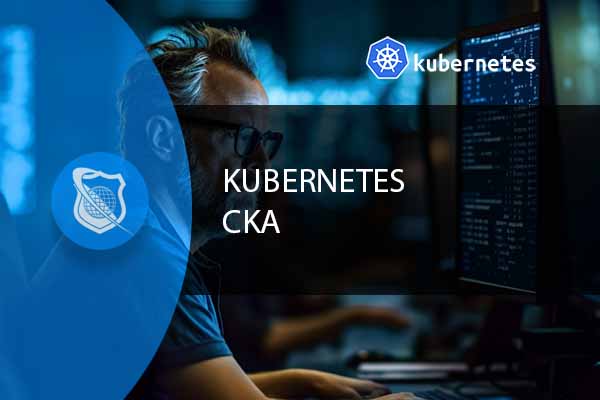Introduction
If you’re reading this, you’re likely gearing up to take one of the most challenging yet rewarding exams in the IT industry: the Certified Kubernetes Administrator (CKA) exam. With over two decades of hands-on experience in the field, I can unequivocally say that mastering CKA exam questions is not just a stepping stone for passing the exam. It’s a cornerstone for building a robust career in Kubernetes administration. This comprehensive guide aims to equip you with the knowledge, strategies, and insights you need to not only pass the exam but also to excel in real-world scenarios. We’ll delve into why the CKA exam questions is pivotal in today’s IT landscape, how to prepare effectively, and strategies to tackle the questions you’ll face.
Why the CKA Exam Questions Matters
The Importance of Kubernetes in Modern IT
Kubernetes has become the de facto standard for container orchestration, making it an essential skill for any IT professional working with cloud-native applications. The rise of microservices and the need for scalable, reliable infrastructure have made Kubernetes more than just a buzzword; it’s a necessity. The CKA exam questions serves as a benchmark that validates your ability to deploy, manage, and scale applications in a Kubernetes environment. This isn’t just about knowing the commands; it’s about understanding the architecture, the philosophy, and the potential pitfalls. With Kubernetes being adopted by startups to Fortune 500 companies, a CKA certification makes you a valuable asset to any organization, irrespective of its size.
Career Advancement
The CKA certification is more than just a line on your resume; it’s a badge of honor that tells employers you have the skills, expertise, and dedication to manage complex Kubernetes ecosystems. In my two decades in the industry, I’ve seen firsthand how this certification can be a game-changer. It can open doors to higher-paying jobs, leadership roles, and even consulting opportunities. Employers often view CKA-certified professionals as authorities in the field, capable of mentoring teams, leading projects, and driving innovation. The certification also provides a competitive edge in job interviews, often serving as a tie-breaker in close decisions.
In the next sections, we’ll dive into the nuts and bolts of preparing for the CKA exam questions, from understanding the exam format to time management strategies. We’ll also explore common pitfalls and how to avoid them, ensuring that you’re well-equipped to tackle CKA exam questions with confidence and expertise.
Certified Kubernetes Administrator
Ready to ace the Certified Kubernetes Administrator (CKA) exam? Our comprehensive course is your one-stop solution! We guide you through the exam process, keep you updated on any changes, and arm you with test-taking strategies. Don’t miss out—enroll now and elevate your career!
Preparing for the CKA Exam
Understand the Exam Format
The CKA exam questions is unlike many traditional IT certification exams. It’s hands-on and performance-based, which means you’ll be solving real-world problems in a live Kubernetes environment. This is not a multiple-choice test; you’ll be executing actual commands and writing YAML files. Understanding this format is crucial because it can significantly reduce exam anxiety and set you up for success. I recommend familiarizing yourself with the exam environment by taking advantage of any available practice exams that simulate the real thing. This will not only help you get comfortable with the interface but also give you a sense of the types of tasks you’ll be asked to perform.
Study Resources
Official Kubernetes Documentation
The official Kubernetes documentation should be your primary resource for preparation. It’s comprehensive, up-to-date, and provides examples that closely mirror the types of tasks you’ll encounter in the exam. In my 20 years in the field, I’ve found that the best professionals are those who read and understand the official documentation. It provides a level of detail and understanding that is hard to find elsewhere.
Practice Exams
Investing in quality practice exams is non-negotiable. These exams give you a feel for the types of CKA exam questions you’ll encounter and the time pressure you’ll be under. Look for practice exams that come with detailed explanations for each question, as this will help you understand not just the ‘what,’ but also the ‘why’ behind each solution.
Online Courses
There are several high-quality online courses that offer in-depth explanations, video tutorials, and hands-on labs. These courses are often designed by industry experts and provide a structured learning path, making them an excellent supplement to the official documentation. Many courses also include forums or Q&A sections where you can seek clarification on confusing topics, providing a more interactive learning experience.
Certified Kubernetes Administrator
Ready to ace the Certified Kubernetes Administrator (CKA) exam? Our comprehensive course is your one-stop solution! We guide you through the exam process, keep you updated on any changes, and arm you with test-taking strategies. Don’t miss out—enroll now and elevate your career!
Time Management
The CKA exam is 2 hours long, which may seem like plenty of time but can fly by if you’re not careful. Time management is crucial for success. During your preparation, practice solving problems under timed conditions to get a feel for what you can accomplish in a limited timeframe. Develop a strategy for tackling questions; for example, you might decide to first complete questions you’re most confident about to secure those points. Keep an eye on the clock and allocate time for review. Remember, each question is independent, so don’t get stuck on a single problem for too long.
Strategies for Tackling CKA Exam Questions
Read Carefully
One of the most common mistakes I’ve seen candidates make over my 20 years in the field is misreading the questions. In the heat of the moment, it’s easy to skim through the question prompt and jump straight into the terminal. This can be a costly mistake. The CKA exam questions are often designed to test not just your technical skills but also your attention to detail. Misinterpreting a single word can lead you down the wrong path, wasting valuable time and potentially leading to an incorrect answer.
Before you start typing commands, take a moment to read the question carefully. Make sure you understand what is being asked, what the constraints are, and what the expected outcome should be. If the question involves multiple tasks, consider jotting down a quick outline to organize your thoughts. This extra minute spent in preparation can save you much more time in execution and review.
Use the kubectl Cheat Sheet
The CKA exam environment allows you to access the official Kubernetes documentation, and this includes the invaluable kubectl cheat sheet. This is a goldmine of useful commands and syntax that can save you time during the exam. However, this resource is only useful if you know how to use it effectively.
Before the exam, spend some time familiarizing yourself with the cheat sheet. Know what kind of information is available and how it’s organized. This will enable you to quickly find the help you need during the exam, rather than wasting time scrolling through pages. Also, practice using the commands from the cheat sheet in a real Kubernetes environment. The more comfortable you are with these commands, the faster and more accurately you’ll be able to execute tasks during the exam.
Verify Your Work
After you’ve completed a task, it’s tempting to move on to the next question immediately, especially when you’re racing against the clock. However, taking a few moments to verify your work can be a game-changer. A small mistake, like a typo in a YAML file or forgetting to apply a configuration, can cost you valuable points.
To verify your work, go through the question prompt again and confirm that you’ve addressed each point. Test your solution to ensure it behaves as expected. For example, if you’ve been asked to deploy a pod, use kubectl get pods to confirm it’s running, and maybe even kubectl describe pod <pod-name> to check for any issues. If the question involves exposing a service, try accessing it to make sure it’s available. These verification steps are your safety net, and they’re well worth the time invested.
Certified Kubernetes Administrator
Ready to ace the Certified Kubernetes Administrator (CKA) exam? Our comprehensive course is your one-stop solution! We guide you through the exam process, keep you updated on any changes, and arm you with test-taking strategies. Don’t miss out—enroll now and elevate your career!
Common Pitfalls and How to Avoid Them
Overthinking
In my 20 years of experience in the field, one of the most common pitfalls I’ve observed is overthinking. The pressure of the exam environment can make even simple problems seem daunting, leading candidates to second-guess themselves and overcomplicate solutions. This not only wastes valuable time but can also introduce unnecessary errors into your work.
The key to avoiding this pitfall is to trust your preparation and instincts. If a solution seems straightforward, it probably is. Kubernetes is designed to be intuitive, and the CKA exam questions are generally straightforward in what they ask. If you find yourself spiraling into complexity, take a step back and reassess. Ask yourself what the question is really asking and whether your solution addresses it in the simplest way possible. Remember, the best solution is often the simplest one that meets all the requirements.
Ignoring Resource Limits
Another common mistake is ignoring resource limits specified in the questions. Kubernetes allows for fine-grained control over resources like CPU and memory, and some CKA exam questions will test your understanding of these features. Ignoring resource limits can lead to incorrect solutions and lost points.
To avoid this pitfall, pay close attention to the details in each question. If resource limits are specified, make sure to include them in your YAML files or kubectl commands. Double-check your work to ensure you’ve set the limits correctly. This is not just about passing the exam; understanding how to manage resources effectively is a crucial skill for any Kubernetes administrator.
Not Reviewing Flagged Questions
The CKA exam interface allows you to flag questions for review, providing an opportunity to revisit them later. This is a useful feature, but it can become a pitfall if you forget to actually review the flagged questions. In the rush to complete the exam, it’s easy to overlook this crucial step, potentially leaving easy points on the table.
To avoid this, develop a time management strategy that includes time for review. As you’re working through the exam, flag any questions you’re unsure about or that you want to double-check. When you’ve completed all the questions, go back and review the flagged ones carefully. Use any remaining time to verify your solutions and make any necessary corrections. This final review can make the difference between a passing and failing grade, so don’t neglect it.
Certified Kubernetes Administrator
Ready to ace the Certified Kubernetes Administrator (CKA) exam? Our comprehensive course is your one-stop solution! We guide you through the exam process, keep you updated on any changes, and arm you with test-taking strategies. Don’t miss out—enroll now and elevate your career!
Conclusion
Mastering CKA exam questions is not merely a means to an end; it’s a transformative process that elevates you from someone who knows Kubernetes to someone who understands it deeply. It’s not just about passing the exam; it’s about becoming a competent, reliable, and skilled Kubernetes administrator who can handle real-world challenges with aplomb. With over 20 years of experience in the IT industry, I can say that the skills and knowledge you gain while preparing for the CKA exam will serve you well throughout your career.
The Dual Journey of Certification and Professional Growth
It’s essential to recognize that the journey to becoming CKA-certified is also a journey of professional growth and learning. The hours you spend reading documentation, the late nights spent doing hands-on labs, and the weekends devoted to practice exams are not just about exam preparation. They are about becoming a better professional, a more valuable team member, and a more knowledgeable individual. The CKA exam is rigorous because Kubernetes itself is complex and powerful. By mastering the exam, you’re also mastering a set of skills that will make you an asset to any organization.
The Long-Term Benefits
The benefits of passing the CKA exam extend far beyond the immediate gratification of achieving the certification. The study habits you develop, the deep understanding you gain, and the troubleshooting skills you acquire will all serve you well in your day-to-day responsibilities and future career endeavors. Whether you’re aiming for a promotion, considering a job change, or looking to lead a Kubernetes project, the expertise validated by the CKA certification will give you the confidence and credibility to achieve your goals.
Final Words of Encouragement
As you embark on this challenging yet rewarding journey, remember that you’re investing in yourself. With proper preparation and the right strategies, you can not only pass the CKA exam but excel in it. Equip yourself with the best resources, practice diligently, and don’t underestimate the value of understanding the core concepts deeply. And most importantly, believe in yourself. You’ve got this!
So, as you click ‘Start Exam’ and begin this significant milestone in your Kubernetes journey, know that you’re well-equipped to tackle whatever challenges lie ahead. Best of luck on your CKA exam, and here’s to your continued growth and success in the ever-evolving world of Kubernetes administration!
CKA Exam Questions : Your Comprehensive Guide for Success
What is the format of the CKA exam and how is it administered?
The CKA exam is a performance-based test that evaluates your ability to perform the responsibilities of Kubernetes administrators. It is conducted online and monitored by a proctor. Candidates are given 2 hours to complete a set of tasks directly within a real Kubernetes environment. The exam tests your practical skills with the command line and your ability to configure Kubernetes clusters, not just your theoretical knowledge.
How should I prepare for the CKA exam to ensure success?
Preparation for the CKA exam involves a blend of theoretical learning and practical experience. Start by familiarizing yourself with the exam curriculum available on the Cloud Native Computing Foundation (CNCF) website. Utilize online courses, Kubernetes documentation, and practice exams to deepen your understanding. Importantly, gain hands-on experience by setting up your own Kubernetes clusters and experimenting with different configurations and deployments. Joining Kubernetes community forums can also provide valuable insights and tips.
What are the key topics covered in the CKA exam?
The CKA exam covers a wide range of topics related to Kubernetes administration, including cluster architecture, installation and configuration, workloads and scheduling, services and networking, storage, troubleshooting, and security. Each of these areas requires a deep understanding of how to manage Kubernetes clusters in real-world scenarios. The CNCF updates the exam curriculum periodically, so it’s crucial to check the latest exam guide for the most current topics.
Are there any prerequisites or recommended experience before taking the CKA exam?
While there are no formal prerequisites for the CKA exam, it is recommended that candidates have a solid understanding of Docker or another container runtime, as Kubernetes is a container orchestration platform. Additionally, hands-on experience with Kubernetes, either in a development or administration role, will significantly benefit candidates. Familiarity with basic Linux commands and networking concepts is also advantageous.
How can I stay updated on changes to the CKA exam and Kubernetes developments?
To stay informed about the CKA exam updates and Kubernetes developments, regularly visit the CNCF website and subscribe to their newsletters. Additionally, participating in Kubernetes community forums, attending Kubernetes-focused meetups, and following Kubernetes blogs and social media channels are excellent ways to keep abreast of the latest news and changes in the Kubernetes ecosystem.

Lock In Our Lowest Price Ever For Only $14.99 Monthly Access
Your career in information technology last for years. Technology changes rapidly. An ITU Online IT Training subscription offers you flexible and affordable IT training. With our IT training at your fingertips, your career opportunities are never ending as you grow your skills.
Plus, start today and get 10 free days with no obligation.
You may also like:
CKA Certification : 10 Tips to Ace the Exam
CKAD vs CKA : The Ultimate Side-by-Side Analysis
CKA Exam Study Plan : A 30-Day Roadmap to Success

























